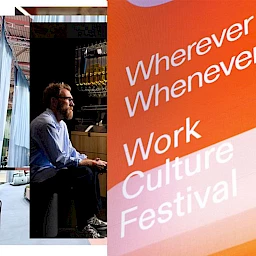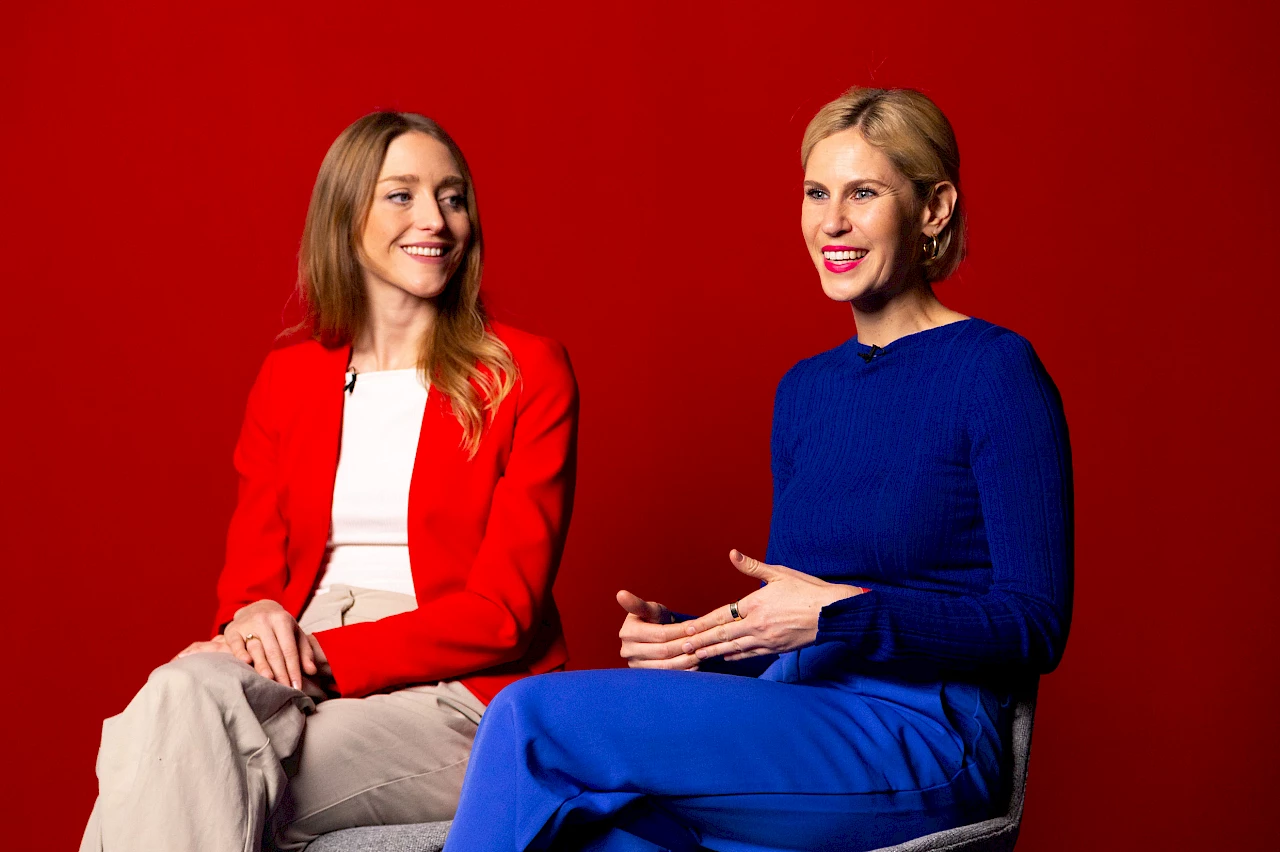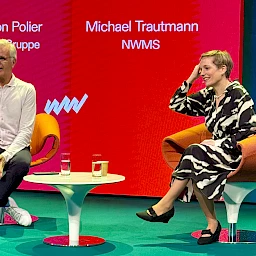What does it mean to take mental health seriously in the workplace—beyond feel-good campaigns and fruit baskets? This is exactly what psychologist Dr. Eva Elisa Schneider and mental health expert Nora Dietrich talked about in their keynote speech at the Wherever Whenever—Work Culture Festival 2024. The two behavioural therapists dispelled misconceptions and feel-good façades and made it clear that mental health is not an add-on, but a key element of a sustainable organisation.
Reality meets aspiration: Insights into everyday life at companies
The presentation began with an interactive reality check: How far along are companies when it comes to mental health? The answers from festival visitors showed a mixed picture. Some organisations are already pursuing holistic approaches including in-house counselling services, mental health ambassadors and company-wide initiatives. In many other companies, however, mental health remains a vague concept—often reduced to individual measures without a strategic framework. This is a key problem for Schneider and Dietrich. Mental health should not be a reactive concept, but rather an integral part of the corporate strategy. Prevention does not just mean reacting to crises, but recognising risks at an early stage and shaping the overall conditions in such a way that health is maintained. This includes a trusting corporate culture, mindful leadership and genuine participation. “Health develops in everyday life—or it doesn’t,” the experts emphasised. This makes it all the more important not to treat mental health as a one-off initiative, but rather to grasp it as a long-term cultural change with resources, clear responsibilities and visibility.
From the feel-good package to situational prevention
All too often, the speakers said, mental health is viewed as an individual topic, with a focus on mindfulness training or resilience seminars. What this overlooks is that the context is decisive. Work intensification, lack of creative freedom and insufficient social security are structural stress factors that can make people ill. “Behavioural prevention alone is not enough,” says Schneider. “We also need to talk about relationships.” Situational prevention—the creation of healthy working conditions—is a key lever. It includes clear responsibilities, visible support services, psychological safety within the team and leaders who take a clear stance—not just in their talk, but in their daily actions. The two experts advocated a clear strategy instead of isolated individual measures and a corporate culture in which mental health is understood as a community effort. Only in this way is real change possible.
Between impact and staging: What is real commitment?
While many companies have now put mental health on their agenda, it often remains unclear whether this is a strategic change or just lip service. Schneider and Dietrich call the phenomenon “wellwashing” when mental health becomes a marketing tool without anything really changing in everyday working life. To take one example, during Mental Health Awareness Month 2024, McDonald’s removed the “Happy” from the Happy Meal, sparking a social debate. The message: “It’s okay not to be okay.” What remains is the question of how serious the company really takes this issue beyond the PR gesture. This is because internal measures or structural changes were not made public. The example of Deutsche Bank shows that there is another way: The bank created a dedicated global role for wellbeing in 2021. In over 400 interviews, Nasrin Oskui—the bank’s Global Head of Well-being—listened to the concerns and issues of the managers and developed a global strategy—with the visible support of the Executive Board and comprehensive communication at all levels. Whether in meetings, town halls or at ATMs, mental health is part of the corporate culture. Schneider and Dietrich are convinced that things will only change in places where mental health is consistently addressed, professionally supported and credibly put into practice. Visibility, commitment and participation are key concepts here. Only when offers are more than a collection of good intentions, namely part of a genuine cultural change, can mental health be effectively strengthened.
Creating visibility, sharing responsibility
Another key topic in the presentation was the visibility of mental health services. All too often, helpful measures—from employee assistance programmes to training courses and check-ins—exist without employees knowing about them or perceiving them as relevant. Schneider and Dietrich therefore advocated treating mental health in companies like a brand in its own right: with recognition value, transparent communication and visible points of reference in everyday life. Offers can only be effective if they are anchored in everyday working life. This requires people who take responsibility, for example as mental health ambassadors in the team, and managers who set a good example. “Everyone has a story, even if not everyone has a diagnosis,” says Dietrich. Talking openly about stress connects people and helps to raise collective awareness of an issue that affects everyone.
The presentation ended with a clear message: You don’t need perfect solutions, but the courage to take the first step. Mental health is not a goal, but a process that is shaped with every conversation, every decision and every structural change. Whether a large corporation or a small team, every organisation can start to find its own way and thus actively shape the transition towards a healthy work culture.
Work Culture Festival Impressions

Dr. Eva Elisa Schneider holds a doctorate in psychology and psychotherapy and is a successful speaker and trainer. She is a passionate ambassador for mental health and is committed to creating a modern working world in which mental health is dealt with openly and matter-of-factly in the workplace. Eva Elisa Schneider is considered one of the leading minds in the field of mental health and regularly appears in podcasts, interviews and panel discussions. Further information is available at: https://www.evaelisaschneider.com/.
Nora Dietrich is a mental health expert, psychotherapist and speaker for the Zukunftsinstitut, among others. She combines the two megatrends of New Work and health and breaks with long outdated taboos to make psychology socially acceptable again. That’s because she believes that the work of the future will be above all healthy. Further information is available at: https://www.noradietrich.com/.
Cover photo: © IBA





